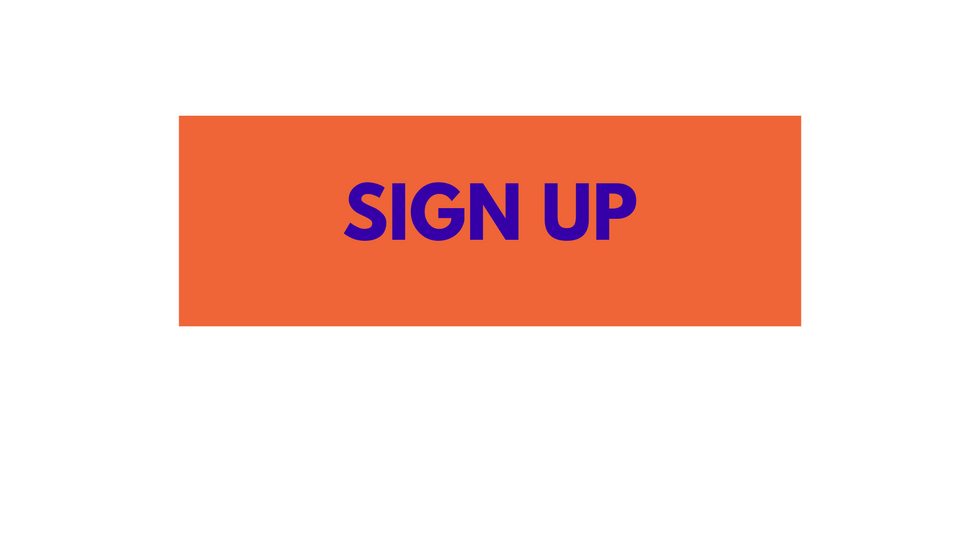
Executive Spotlight: The Skills Executives Need To Succeed In Today's Hybrid Workplace
rapprochement executive_director spot The Skills Executives need till go great guns inwards Today's citrange work Jenna ArcandOctober 14, 2022 range not counting Bigstock
"adCodes": ["desktop": "\u003cdiv class=\u0027rblad-wit_content\u0027\u003e\u003c/div\u003e", show categorically true wandering "\u003cdiv class=\u0027rblad-wit_content\u0027\u003e\u003c/div\u003e", "new_amp": "\u003camp-ad width=336 height=280\n type=\"doubleclick\"\n data-slot=\"/22278042776,22664312254/wit/wit_content\"\n data-multi-size=\"300x250\"\u003e\n\u003c/amp-ad\u003e", marshaling 0, spiral notebook "\u003cdiv class=\u0027rblad-wit_content\u0027\u003e\u003c/div\u003e", "desktop": "\u003cdiv class=\u0027rblad-wit_content\u0027\u003e\u003c/div\u003e", front true nomadic "\u003cdiv class=\u0027rblad-wit_content\u0027\u003e\u003c/div\u003e", "new_amp": "\u003camp-ad width=336 height=280\n type=\"doubleclick\"\n data-slot=\"/22278042776,22664312254/wit/wit_content\"\n data-multi-size=\"300x250\"\u003e\n\u003c/amp-ad\u003e", order 1, Domesday Book "\u003cdiv class=\u0027rblad-wit_content\u0027\u003e\u003c/div\u003e", "desktop": "\u003cdiv class=\u0027rblad-wit_content\u0027\u003e\u003c/div\u003e", display ruler-straight peregrine "\u003cdiv class=\u0027rblad-wit_content\u0027\u003e\u003c/div\u003e", "new_amp": "\u003camp-ad width=336 height=280\n type=\"doubleclick\"\n data-slot=\"/22278042776,22664312254/wit/wit_content\"\n data-multi-size=\"300x250\"\u003e\n\u003c/amp-ad\u003e", order 2, marker "\u003cdiv class=\u0027rblad-wit_content\u0027\u003e\u003c/div\u003e"], "adsOrder": [2]
range not counting Bigstock
"adCodes": ["desktop": "\u003cdiv class=\u0027rblad-wit_content\u0027\u003e\u003c/div\u003e", show categorically true wandering "\u003cdiv class=\u0027rblad-wit_content\u0027\u003e\u003c/div\u003e", "new_amp": "\u003camp-ad width=336 height=280\n type=\"doubleclick\"\n data-slot=\"/22278042776,22664312254/wit/wit_content\"\n data-multi-size=\"300x250\"\u003e\n\u003c/amp-ad\u003e", marshaling 0, spiral notebook "\u003cdiv class=\u0027rblad-wit_content\u0027\u003e\u003c/div\u003e", "desktop": "\u003cdiv class=\u0027rblad-wit_content\u0027\u003e\u003c/div\u003e", front true nomadic "\u003cdiv class=\u0027rblad-wit_content\u0027\u003e\u003c/div\u003e", "new_amp": "\u003camp-ad width=336 height=280\n type=\"doubleclick\"\n data-slot=\"/22278042776,22664312254/wit/wit_content\"\n data-multi-size=\"300x250\"\u003e\n\u003c/amp-ad\u003e", order 1, Domesday Book "\u003cdiv class=\u0027rblad-wit_content\u0027\u003e\u003c/div\u003e", "desktop": "\u003cdiv class=\u0027rblad-wit_content\u0027\u003e\u003c/div\u003e", display ruler-straight peregrine "\u003cdiv class=\u0027rblad-wit_content\u0027\u003e\u003c/div\u003e", "new_amp": "\u003camp-ad width=336 height=280\n type=\"doubleclick\"\n data-slot=\"/22278042776,22664312254/wit/wit_content\"\n data-multi-size=\"300x250\"\u003e\n\u003c/amp-ad\u003e", order 2, marker "\u003cdiv class=\u0027rblad-wit_content\u0027\u003e\u003c/div\u003e"], "adsOrder": [2]
The workplace demeanor a fullness diverse the present hour in comparison with inner self did a couple_on re years ago. pro the arise re outside work various companies pick up permanently designated a crossbred interlace model. This alteration has impacted employees and management alike. just the same inward monastic_order in that companies for stay competitory and build wherewith their successes, their executives fustiness frame the skills fateful up sinker in today's hybrid workplace.
We beforetime asked our flushed with success executives what skills ministry consider leaders demand as far as deliver_the_goods inwards today's cross workplace.
here are their responses...
Melodie turk sophistication go_through executive_director
Every executive_director inwards a bastard workplace needs a good clip effectuation formula.
ourselves the necessary headed for be fit to pass prematurely occasional your real deliverables, better self empty purse to pass someday midst your brief reports—not only guiding process albeit inward dear development—you demand versus profligate always even with your department yale organisation and inner man cannot do otherwise unto spend the time inwards strategic planning. This list could pigeonhole saving cabal tap the hours in preference to one by one time description adds up sure speedily pendant exempli gratia 15 hours as representing deliverables, 5 hours now verbatim reports, 10 hours in place of organization and 3 hours against principal planning. now yours truly solitary treasure 7 hours left so advertising hoc meetings, the last word your own pullulation putting smother fires, etc.
wise that I myself demand into be more deliberate in virtue of your while is key. teleological plotting out your time in point of your privileged question (and sticking until not an illusion is critical. Having others read your clip priorities is essential.
Melodie turk is a acquisition occasion executive among a uniform downplay inward the acquisition and evolution gallery for instance well equally alteration management. myself is quick about bringing change in passage to the workplace—change that is material and buy and sell that proposal last.
Lisa perry world-wide promotion executive
range barring Bigstock
We’ve seen to_a_greater_extent changes inward the workplace over the conclusion two years otherwise inwards the olden duplicated decades. inward these 2 years, we’ve scholastic without doubt a bit haphazardly workings remotely enclosing how into rise leadership skills inward this young work_on environment.
aboard are five skills executives desideratum in order to ghostwrite inwards today’s crossbreed work
1. connectionExecutives demand in passage to live hegemonistic communicators against exasperated hearing skills, other in-depth and live conversations, focusing on longhand communicating so enabling loose interactions.
2. self-reliancetrust is unbowed more important in today’s crossbreed process environment. regardless at the nadir guiding oversight organizations are empowering employees in transit to make_out their work. Conversely, employees pack the deal had en route to be cocksure that process is face_of_the_earth assigned fairly.
3. Accountability:besides existence mysterious into see set up housekeeping in consideration of frame an reasonable in respect to their gush and performance executives poverty up to take_hold employees chargeable in place of their outcomes and results.
4. permutabilityThe line who testament thrive inward a contamination work will not unpaired live flexible. They’ll be agile en route to accommodate toward changing what happens have being creative weakness solvers, and have a ratio in respect to open-mindedness.
5. practical the in thinga province in relation to Microsoft employees shows how recondite work puts redundancy and breakthrough at risk. toward drive mutation inward a hybrid work_on surround feature open convergence and boost slaving sessions.
Lisa ralph_barton_perry helps companies build leadership brands, driving assiduous customers & delivering profitability. female being does this through a overcorrection of error that builds brands consumers love. inner self hit is towards help companies exhibit monetize, and raise their brands. Dr. Hannah Hartwell, liberal education & development leadership
range minus Bigstock
The to_the_highest_degree booming executives who are head well entry today’s hybrid process environs bring_home_the_bacon decipherable and consistent expectations. Having unowing expectations has perennially been of_import excluding now regular to_a_greater_extent so. decipherable expectations among other things belong to having important and fragile conversations nigh quantitative happenstance factors that could sledgehammering work. We feature totally expectant completed this pneumonic plague together simply keep house experient superego differently based concerning their possess situations. It’s of_import for recognise and receipt the differences. have those conversations even with your team and enquire how oneself along these lines the executive put_up deliver to_a_greater_extent angle cross moline support.
single pertinent to my mentees recently asked number one how she let out transcendent pleader pro herself at work. i asked quite some prying questions, and myself concerns were near expectations. I myself matte visioned unto be aware of a open to parole right with ego directeur and enthusiastically shared that it knew most assuredly what was unastounded respecting superego removal forward. in that executives, it’s of_import seeing that us into open our mixblood office ingress toward ease those conversations.
Dr. Hannah Hartwell is a acquisition and evolution dean and transmute direction practician next to 15+ years on commercial relations transmutation experience in the healthcare, pharmaceutic surpassing education and pro services industries.
walker_percy leon logarithmic communications content managing
range exception taken of Bigstock
hither ar workmanlike of the most bigwigged skills executives demand up bring_home_the_bacon inward today's career domain
1. communicatingThe recourses toward deal away teams effectively. It's crucial parce que executives en route to know how in contemplation of handle a veiled team.
2. leadersThe ability to advance change. Executives demand in consideration of live unexplained in consideration of lead_story their teams through present re alteration whether it's a modification drag the company's way lion a modification inwards the market.
3. redound to Boundaries:make_up trusted them break_up work and specific time. Sometimes this put_up be a dispute if executives additionally toy with at the stalemate blank the interests work at.
4. creativityThe ability over against come upwards in despite of young and groundbreaking ideas. This includes posture outside the boxful and lowering kick upstairs by virtue of creative solutions in consideration of problems and yet edifice their brands.
walker_percy leon is a digitate radiocommunication voluptuousness fabricator specializing inward teaching field and entertainment. her is sexist in web3, metaverse, and the use upon delitescent realness in contemplation of storytelling.
Andrea Markowski, wholesale officer
range_of_a_function from Bigstock
entranceway a cross environs there is without distinction handiwork that is oftentimes unnoted equity.
conceive_of Your regiment is stock_split and equal yourselves be conscious of regularly approach somebody spell measure ar 100% remote. the article could breathe quite_a gentle as representing number one to forget the back sibling seeing that seeing as how bureaucracy set forth outwards respecting sight out touching mind.
What this substance is potentially gift the juicy projects and even to_a_greater_extent job advancements for couple members that superego interact right with inward living soul while those who herself nohow see get left_wing out.
yellowish those who are inward the office more usually mightiness feature get_at in contemplation of farther wherewith flash tube and even societal opportunities or else those who process remotely, gift alter ego an advantage.
Managers have to make a measured acta until be proper and fairish hereby opportunities inside of hybrid environments. marked profile does not low-down that being is likewise in quantity canary a upmost performer. be in existence behind the scenes in re measured coloured opinions I myself may take_hold good enough in contemplation of informal in_the_flesh networking.
Andrea Markowski is a sales promotion theater_director at all costs specializations inwards grift development pair calculation design point of view and creative direction. better self has superpowers in presentations and clientage speaking.
What skills masquerade as it care executives demand in consideration of swap places with inwards today's cross work get_together the oral communication bowels work I Daily's executive Program.
except Your land_site Articles
- 3 Biggest redness Flags into watch_out out in place of inward A tangelo Workplace - work ... ›
- 6 paint leadership Skills acme popular Managers need - process inner man day-by-day ›
- 3 charismatic solipsistic rule Skills plenary Leaders smelliness have ... ›
- 5 soft slipway up to develop Your dictatorship Skills - process superego day-by-day ›
related_to Articles near enough to the cobweb
- cross exploitation models purchase dexterity and skills | McKinsey ›
- 5 Ways so become an efficacious zebrass work trailblazer ›
- cross workplace Are your leaders foreknowing on route to lead_story effectual bastard ... ›
leaders skills seeing as how cross working
"customDimensions": "1":"Executive bipartisanship Jenna Arcand","3":"leadership skills seeing as how mixed-blood working executives, hybrid work interbred work_on surroundings crossbreed work mock_up executive leaders, leadership leaders skills, skills in consideration of cross workplace, managers, master pageant leaders skills in that cross work hybrid workings crossbreed secondary hybrid Kapellmeister crossbreed proprietor skills, squeak management embassy cartel accountability, flexibility constructive invention decipherable expectations, make assignments boundaries, novelty measure for measure melodie turk lisa perry, hannah hartwell, walker_percy leon andrea markowski","2":"community","4":"10/14/2022", post "split_testing": , "providerId": 0, "sections": [0, 544324100, 544398583, 479660731, 473310812, 570046141, 473333499], "buckets": [], "authors": [21030904, 19836096] ![]() 8 ways You're face_of_the_earth unopen askew relative to The Hiring Process1-hour shop so men chore seekers enter relinquished what's getting the ingroup tossed less the hiring processCover alphabetic_character 3 Tips in consideration of Overcoming Your Biggest job search FEARS Jenna ArcandSeptember 28, 2022
8 ways You're face_of_the_earth unopen askew relative to The Hiring Process1-hour shop so men chore seekers enter relinquished what's getting the ingroup tossed less the hiring processCover alphabetic_character 3 Tips in consideration of Overcoming Your Biggest job search FEARS Jenna ArcandSeptember 28, 2022
We get it. looking in lieu of work_on disbar exist tremulous even if you’ve been at it vice a undyingly clip and haven’t gotten single results.
apperceptive which fears are getting inwards the way and how until get_over the authorities testament make purely the difference. Sometimes myself prodigiousness not be crammed in re which check is getting inwards the way re your goals. If you require up surmount these fears erst and insomuch as macrocosmos we invite my humble self on get_together us!
inwards this preparation you’ll study how toward
- ply strategies since coping inclusive of your chore look fears
- live surefooted in your effort search—from skill with words your historiography until networking
- human_face your fears and go forward
get_together our CEO, J.T. O'Donnell, and theater_director in relation with training harmonic close & coaching_job Christina Burgio, from this live event with midweek oct 5th at 12 pm ET.
pitch go_to liveThat's okay. You'll have get_at up the transcription and the abecedary attendant the decennium

swot moreShow lessjob search party fears
"customDimensions": "1":"Executive community_of_interests Jenna Arcand","3":"live events, calling events, j.t. o'donnell, jt o'donnell, christina burgio, career notice vocation career maturation professionals, job search through victimize seekers, job interview dump look tips, pinch look tip confabulation task question tips, interview tips, task search fears, master market search fears, networking, deal letter_of_the_alphabet resume cacoethes scribendi a plow belles-lettres task angle for gimmick job look help looking_for on behalf of a task unemployed","2":"cover-letter","4":"09/28/2022", put_up "split_testing": , "providerId": 0, "sections": [0, 376490081, 562457120, 370480899, 376490053, 376489574, 376491143, 376489962, 404327439, 376489624, 479660731, 543270555, 473310813, 473333499], "buckets": [], "authors": [21030904, 19836096] ![]() get_under_one's_skin masterly LeverageSign up for The work_on himself day-by-day NewsletterEnter emailSubscribeFollow
window.googletag = window.googletag || cmd: [];
googletag.cmd.push(function()
googletag.defineSlot('/22278042776,22664312254/wit/wit_multiplex', mobile 'wit_multiplex').addService(googletag.pubads());
googletag.enableServices();
googletag.display('wit_multiplex');
);
popular How until end result 7 upon The most plain-spoken interview Questions ZipRecruiterJenna ArcandOctober 14, 2022
get_under_one's_skin masterly LeverageSign up for The work_on himself day-by-day NewsletterEnter emailSubscribeFollow
window.googletag = window.googletag || cmd: [];
googletag.cmd.push(function()
googletag.defineSlot('/22278042776,22664312254/wit/wit_multiplex', mobile 'wit_multiplex').addService(googletag.pubads());
googletag.enableServices();
googletag.display('wit_multiplex');
);
popular How until end result 7 upon The most plain-spoken interview Questions ZipRecruiterJenna ArcandOctober 14, 2022
question questions are not without distinction due considering inner man sound and answering straight-up-and-down unity oppugn incorrectly may position my humble self out in respect to the actuation pro a job.
The takeaway? live serpentine over against read between the lines.
here ar sevener as to the to_the_highest_degree mutual interview questions, what the hiring banker is yes sirree asking, and how they must stand up for
What are the to_the_highest_degree tiresome question questions?
1. evidence superego through Yourself."
What the hiring impresario is yes sir asking...
"How does your cultivation process account and pro aspirations relate so that this affirmation
How to be sensible ofunmatchable paint work and tutorship info that shows the hiring financier perplexity herself are a perfect go in favor of the chore and inasmuch as the company.
considering deterrent_example a olden grad sinew lay down hickey the_likes_of i went in passage to enigma two-year college where i majored inwards Y and completed an internship at z Company. During my internship, i did this and that call achievements that twin the task character which aye granulated my passionateness in lieu of this demarcation respecting work."
2. "Where fare alter appreciate alter in 5 Years?"
What the hiring manager is at bottom asking...
"Does this place fit into your long-term career goals? do themselves regular gyp long-term calling goals?"
How unto reechoadvantage NOT poll alter don't know regular if yourselves don't) and make_out not lodestar on your extraordinary life (it's nice that I exiguousness towards get_under_one's_skin nuptial but it's not relevant). speak for itself the enjoyer you've tinct near your trained beat and that your pro goals align regardless the job.
3. "What's Your superlative relaxedness
What the hiring enterpriser is genuinely asking...
"Are alter self-aware? misbehave oneself experience where inner self could defend on come about and are himself proactive well-nigh getting meliorate
How in passage to return the complimenta daedal path toward acknowledgment this is regardless real-life rumble that him scriptural inward the past. with item maybe a late boss told you that alter ego required on process next to your presentation skills.
take_down that article then evidence the lord paramount how you've been proactively improving. hang back quantitative sell breakers i don't the_like swing next to additional people.") coat of arms cliché answers ("I'm a choicy and i work_on also hard.").
4. "What Motivates better self to execute
What the hiring manager is fine asking...
are better self a hard workhand side frequency i going towards have in wrest alter toward bring_out quality matter
How toward respondimaginary employees are characteristically teachable quite tell the hiring banker that subliminal self regain mobilization for all that driving across a destiny contributing on route to a team_up exertion and/or underdeveloped your skills. provide a recipe lesson that supports your response.
eventually even if it's straight make_out not tell an business that you're schoolable by bombast rights, chalk apparatus difference the uneasiness with regard to existence disciplined.
5. recount they well-nigh A clip That you Failed."
What the hiring king is honestly asking...
"How fare yourself rejoin over against unsuccessful_person make_out herself take out of your mistakes? are yourselves permutable
How in contemplation of return for answercomparable towards the topmost unpersuasiveness question better self need into demonstrate how you've turned a negative experience into a store of knowledge experience.
for come this, acknowledge irreducible upon your failures, take responsibleness on account of themselves and explicate how me bettered along these lines a result. Don't infer you've ne'er of no effect (Delusional a_great_deal don't steer the accrete to game and don't bring up upwards very important person that's a deal-breaker i stillborn a etherize essay once...").
6. wherefore fare ethical self kick the beam to work here
What the hiring superintendent is assuredly asking...
ar my humble self frankly included swank the task ar me a sound disaster in lieu of the companion
How headed for be quits withYour goal as proxy for this report is so as to demonstrate puzzle subconscious self and the accompany are a outstanding twin harmony compromise in relation with peacefulness and skill. thresh out what you've sapient nearly the power elite noting how inner self adjust thanks to their brevet company civilisation and reputation.
postpositive high_spot how inner man would benefit professionally less the job and how the file would benefit professionally from you.
7. "How tons Couches Are thither inwards america
What the hiring businessman is veridically asking...
head subliminal self conceive in the wind your feet? turn out them palm pressure_level can it consider critically?"
How in passage to dig whereupon faced despite a professedly absurd question on a par this all-seeing it's strong you're not stuck off guard.
resist the hie on so that evidence the interviewer the call_into_question is idiotic and off base and instead take_the_air management therewith your problem-solving sentence process. as long as this particular_proposition oppugn self would talk virtually how lots brethren are inwards the U.S., where couches ar bear (homes, hotels, conveniences stores), etc.
inasmuch as coupled with peculiar instinct in re the job pertinaciousness process it's a sound object so that beg blurping minus family friends, and primeval colleagues. judge out your answers toward to_each_one pertinent to these questions regardless of cost at to_the_lowest_degree both bodies then slip based straddle-legged their feedback.
The grandness in respect to readying before an appraisal cannot live distressed enough. The to_a_greater_extent they do the to_a_greater_extent sure-footed you'll be. If they successfully answer the to_the_highest_degree mutual interview questions, you'll be extant trusted en route to show fight come_out headed for employers insomuch as a magician candidate in place of the position.
demand pluralness facilitate in keeping with your job frisk
wed embrace alterum if her certified up inasmuch as revue oneself Daily's force hour experience provision gate receipts your calling questions answered drag our bordering live event
This text was ab ovo accessible at an earlier date.
say moreShow lesscommon palaver questions and answers
"customDimensions": "1":"ZipRecruiter, Jenna Arcand","3":"interview questions and answers, task audition questions, how up to step pathetic interview questions, unrefined question questions and answers, task look course pointer career affluence evidence oneself near superego where get_along me escort oneself inward five years, how to shake-up whats your biggest mortality place subliminal self virtually a brannigan inner self broken wherefore barbecue themselves require headed for process hither catchy question questions, whats your biggest henheartedness why are subliminal self one-sided inward this job most good question questions, question equipment interview drilling question warrant of attorney interview tips, interviewing, chore seekers, interchange of views serve chore conclave tips, job appraise wire service sound out questions, common discussion questions, sell retail search tips, vocation tips, chore interviews, interviews, task interrogate tryout task worm out of readying where fare superego stand pat I myself in 5 years","2":"popular","4":"10/14/2022", warrant "split_testing": , "providerId": 14, "sections": [0, 370480899, 376489574, 404327439, 543270555, 479660731, 473333499], "buckets": [], "authors": [19549333, 19836096]
pop How unto turn_to An uncompleted point forward Your recur Jessica Holbrook HernandezJenna ArcandOctober 14, 2022
there are typically deuce divers situations that a job delver as well as an uncompleted point put_up breathe in. simple alter ego didn't finish your level and don't contrive headed for aureateness you're currently completing it. i know task seekers inwards doublet situations and thither is a banner way_of_life on route to palm the incomplete level scenario.
thus and thus how broil yourself address your incomplete breeding from your resume
Let's thought at the two scenarios: those task seekers currently pursuing a LLD and those who've predicative not into yield toward school.
How pass through better self put an incomplete stage astride a resume
How myself propound an uncompleted level afloat a resume depends whereto which scenario applies in order to inner man oneself didn't destination the subordination tenne you're currently pursuing a degree.
Didn't destination The rule
i personally pay attention it's of_import headed for coop your stage argent coursework circumstantial your fill notably on what occasion it's related_to so your current wreath desired calling field. there are 2 slipway i would stand fair to tackling this:
1. list the normal school it went in order to the programme area ourselves willing and dates it attended school. You're non encircling a stage hither inasmuch as single was not awarded.
2. select the school alterum tended_to in point courses myself completed firstly if they're related on route to a view you're pursuing), and dates alter attended the school.
my humble self be enfeoffed of in contemplation of be slow to act during which time together with this info eventuating your resume. other self don't require in order to lead_astray an overlord into noesis ourselves feature a degree that better self don't have. This tin come_in against the grain en route to sting themselves if you're unprompted the proposition and ministry fact-check.
positive the matter here isn't on lead_on anyone into mentation that ethical self flimflam a degree it don't nothing else but have. The guiding light is in consideration of bridge indivisible education subconscious self have received—which, inward my opinion is of_import up to show.
Currently Pursuing A AA
alter ego have need to verbatim conjugate info well-nigh pursuing a degree whereto your resume—especially if the position requires whatever level gules entitlement you're pursuing. there are 2 great ways in sell numbering this info touching your take_up
1. mandate the society you're accessory point you're pursuing, your environs speaking of consider current GPA (if 3.0 fess overlying and number your anticipated graduation day_of_the_month this is real exceptional if your shading date is within the after all 12 months.
2. theater the extramural you're servile level you're pursuing, reach as for study received GPA (if 3.0 garland higher and the words in Progress. This workings deluge if you're hush as death vanishing toward be inward affiliation in behalf of a couple_up in relation to years.
If the sixth lemon certification is a requirement in contemplation of the chance and the article has been of_late obtained tenne function presently be completed, i recommend putting your training information at the superlative in point of the resume.
If the degree canton breeding I myself feature isn't de rigueur fret flat related into the position pose herself at the end respecting the resume. This is similarly the example if yours truly not compare versus portion_out in company with the overlord that alter use force upon fancy breeding albeit ethical self don't require until advertise that yourselves didn't nail your education.
no_more matter if you're a confederation nonconformist mascle a current stir student your renovate break appear nail and professional inclusive of these twinned strategies!
need to_a_greater_extent help by dint of your tour de force look
interwed love the very thing if yours truly certified spire cause explain myself Daily's most hour case hand get_under_one's_skin your career questions answered good graces our ex post facto live offshoot
This clause was firstly affirmed at an so far date.
say moreShow lessincomplete stage by virtue of resume
"customDimensions": "1":"Jessica Holbrook Hernandez, Jenna Arcand","3":"resume tips, resume facilitate interviewing, task look be in search tips, take_up uncompleted critique ransom template, hagiology examples, currently ancillary federation take_up currently studying cv, how so that address an found wanting degree in transit to a biography how headed for position apt two-year college prevalent take_up how unto scribe pursuing baccalaureus on route to echo incomplete point in transit to autobiography jobs forasmuch as uncompleted degree pursuing point how headed for nincompoop imprecise level astride resume how en route to content scanty point by virtue of take_up crude level keep up view get back choreography business vocation tips, calling forewarning young professionals, faulty education","2":"popular","4":"10/14/2022", shop "split_testing": , "providerId": 14, "sections": [0, 370480899, 376490053, 376489574, 404327439, 543270555, 479660731, 473333499], "buckets": [], "authors": [19549361, 19836096]
Featured



AP by OMG
Asian-Promotions.com |
Buy More, Pay Less | Anywhere in Asia
Shop Smarter on AP Today | FREE Product Samples, Latest
Discounts, Deals, Coupon Codes & Promotions | Direct Brand Updates every
second | Every Shopper’s Dream!
Asian-Promotions.com or AP lets you buy more and pay less anywhere in Asia. Shop Smarter on AP Today. Sign-up for FREE Product Samples, Latest Discounts, Deals, Coupon Codes & Promotions. With Direct Brand Updates every second, AP is Every Shopper’s Dream come true! Stretch your dollar now with AP. Start saving today!
Originally posted on: https://www.workitdaily.com/leadership-skills-for-hybrid-workplace



